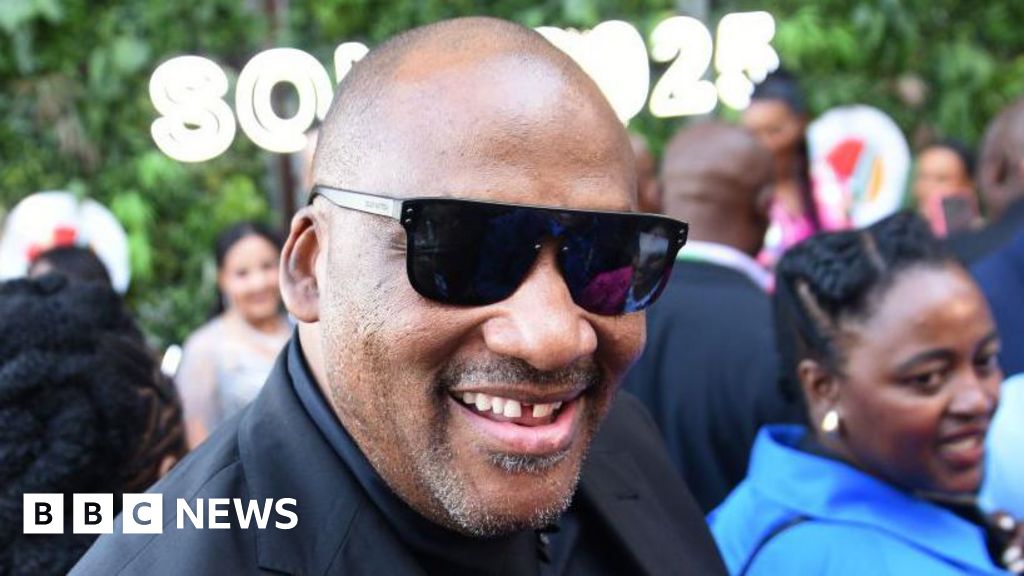South Africa minister under fire over racial slur

South Africa Minister Faces Backlash Over Historical Racial Slurs
South Africa's Minister of Sports, Arts and Culture, Gayton McKenzie, is under intense scrutiny after historical social media posts containing a deeply offensive racial slur resurfaced. The posts, dating back over a decade, have prompted condemnation and a demand for a public apology from the South African Human Rights Commission (SAHRC). The controversy raises complex questions about race relations in post-apartheid South Africa and the ongoing challenges of reconciliation.
SAHRC Demands Action
The SAHRC has given Mr. McKenzie until the end of Wednesday to respond to their demands, which include deleting the offensive posts and issuing a public apology. The commission, tasked with addressing human rights violations and seeking "effective redress," is investigating the matter after a criminal complaint was filed following derogatory remarks made about the coloured community on a popular podcast.
Minister Defends Himself, Claims Context
Mr. McKenzie, leader of the Patriotic Alliance (PA), a party that draws significant support from the coloured community, has acknowledged the posts but defended himself in a lengthy Facebook video. He stated that he regrets the use of the slur but argued that his own mixed heritage – identifying as both "black and coloured" – provides context. He also highlighted his participation in the anti-apartheid struggle.
Historical Context: Apartheid's Legacy
The term used by Mr. McKenzie, the "K-word," was a deeply dehumanizing slur used against black people during the apartheid era. Apartheid, a system of institutionalized racial segregation and discrimination, classified people into racial groups, with white people at the top and black people at the bottom. Coloured people, those of mixed heritage, occupied a middle ground in this legally enforced racial hierarchy.
Despite the dismantling of apartheid in the 1990s and the promotion of the "rainbow nation," its legacy continues to shape South Africa's social and economic landscape. Racial classifications remain deeply embedded, influencing where people live, their employment opportunities, and their overall wealth.
Expert Analysis: Lingering Divisions
"The geography of apartheid, which separated different races, is still very strong," explains Professor Kedibone Phago of North West University's government studies department. "We just don't know each other at all… [or] each other's culture and habits [so] when people call us the rainbow nation, it's just nonsense. Very few people socialize across racial barriers."
Terry Oakley-Smith, founder of diversity consultancy Diversi-T, adds, "The beginning of democracy in 1994 did not wipe out racism, but what's unusual about this case is that it's about a so-called coloured person using that sort of language and remarks." She also expressed disappointment with the remarks made by the podcast presenters about the coloured community, highlighting the complexities of inter-racial relations in South Africa.
Political Implications
The controversy could have significant political ramifications for Mr. McKenzie and the ruling African National Congress (ANC). The PA is part of the multi-party coalition government formed after the ANC lost its parliamentary majority. The ANC views Mr. McKenzie as a valuable ally in appealing to coloured voters and addressing their concerns about marginalization.
However, the resurfaced slurs could alienate voters and undermine the ANC's efforts to promote racial unity. The Democratic Alliance (DA), the second-largest party in South Africa, is likely to capitalize on the controversy to attract coloured voters.
Marginalization and the Coloured Community
There is a long-standing sentiment within sections of the coloured community that their needs have been overlooked in the post-apartheid era. Mr. McKenzie has previously stated that coloured people "woke up in the new South Africa and found legislation that makes it clear that they are not Africans," highlighting a perceived sense of exclusion.
Professor Phago argues that this sense of marginalization reflects a broader issue of communities seeking to blame others for systemic problems. He emphasizes the need for strong government leadership in driving "societal transformation" to address the root causes of racial tensions.
The Way Forward
Oakley-Smith believes that this latest racial storm exposes the urgent need for improved race relations. "We have so much work to do... [and] unless we take some actions, these things are going to continue," she noted.
The SAHRC's decision and President Ramaphosa's response to the controversy will be closely watched as South Africa grapples with the enduring legacy of apartheid and the ongoing challenges of building a truly unified nation.
Originally sourced from: BBC News Africa
